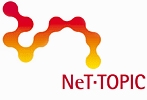
As a result from their location and the urban and territorial systems in which these cities are nestled, the land of the intermediate cities has often been used for the industrial sector (sectors which are now in recession/decline), for infrastructures (which slipt up the city) and for residential functions (which need integrated rehabilitation). Faced with this situation, these cities need to adequate the land uses with their socio-economic and territorial area trends, and therefore to develop a city model change process. This means, that they are transforming from peripheral cities to central cities, from residential to daytime cities (university, administrative or business centres), from industrial cities to technological/knowledge/services cities, from monofunctional to multifunctional cities.
These cities are considering the common challenge of mananging a city change that increases the strategic value of their territory in order to transform them into more attractive cities which offer greater quality of life and better citizen coexistence.
An important challenge of these cities concerns with their territorial governance and urban planning processes, throughout the promotion of new tools and approaches among their local governments in order to improve their urban transformation processes. In other words, the traditional forms or urban management and planning of peripheral monofunctional cities is no relevant or efficient anymore to govern cities experimenting important transformations and to plan strategies for an urban change.
Considering the common contexts & challenges of all network cities, some topics have been identified:
Core Theme:
- Building new models of urban development in peripheral cities in metropolitan areas
Sub Themes:
- Development and consolidation of an urban identity.
- Enhancement of new forms of urban and metropolitan governance.
- Tackling urban fragmentation caused by roads and communication infrastructures.
- Recovering and conditioning abandoned and obsolete industrial areas.
- The planning and management of the transformation from a mono functional to a multi functional city.
What motivates you to be part of the URBACT adventure ?
L'Hospitalet aims to foster the exchange of knowledge, experiences and best practices among its partners. L'Hospitalet, as the rest of network partners, seeks to enhance the role of peripheral cities in territorial governance and urban planning processes to achieve their desired new city model.
Who would you like to benefit from the work achieved in your project?
By means of its participation in NeT-TOPIC network, the whole city will benefit from the experiences, knowledge and best practices exchange among other partner cities.
